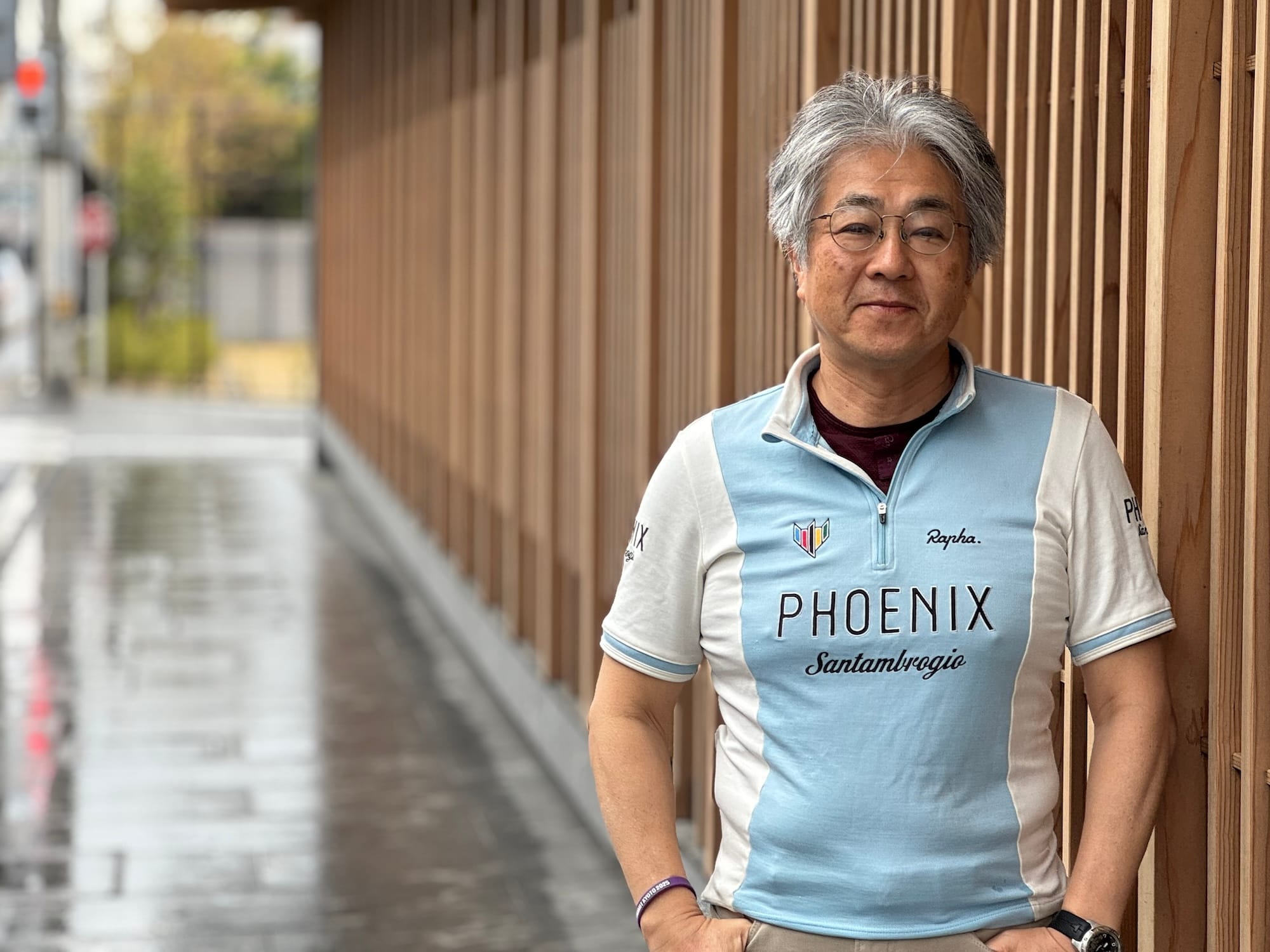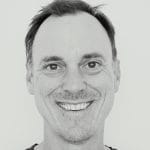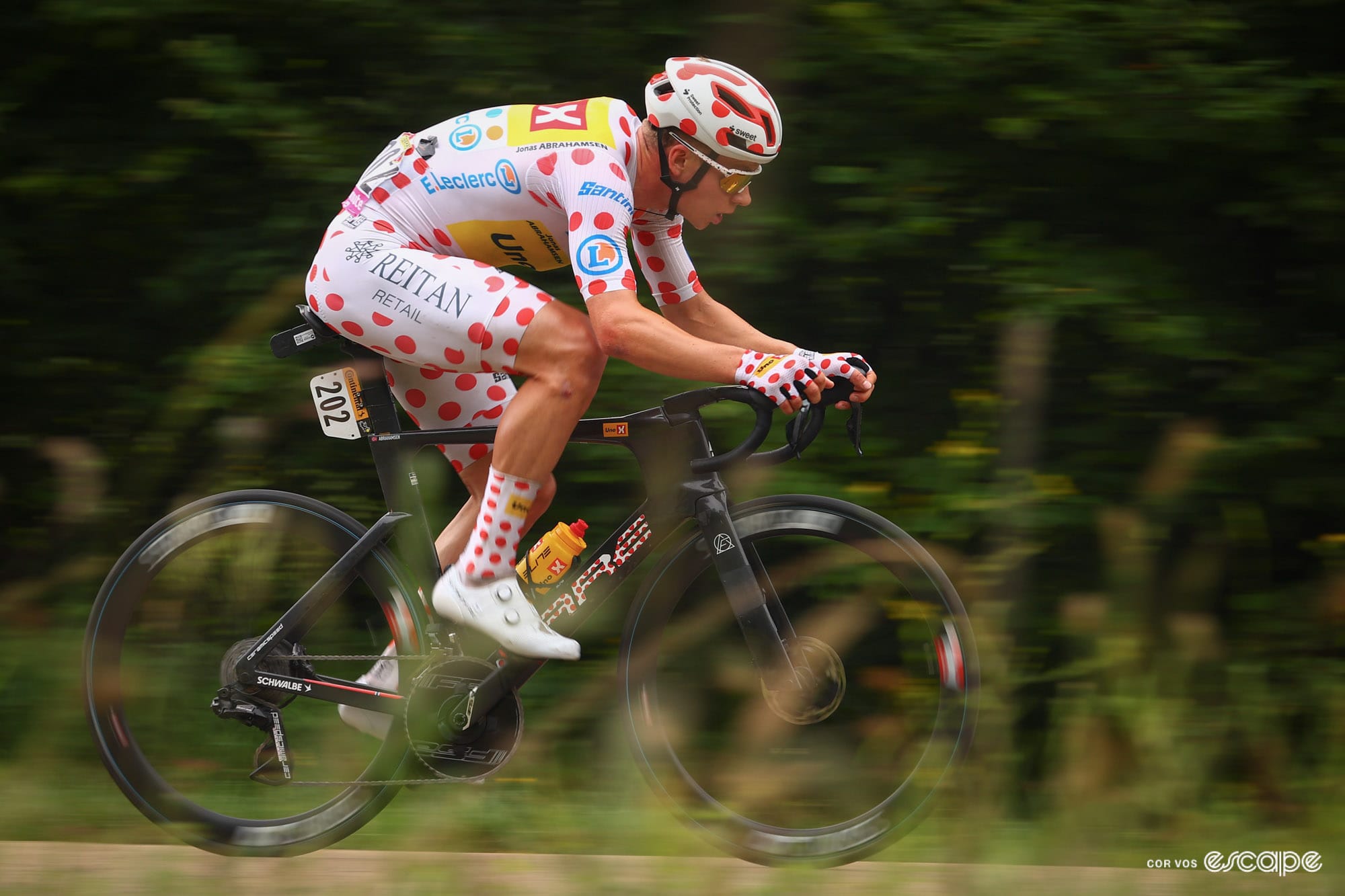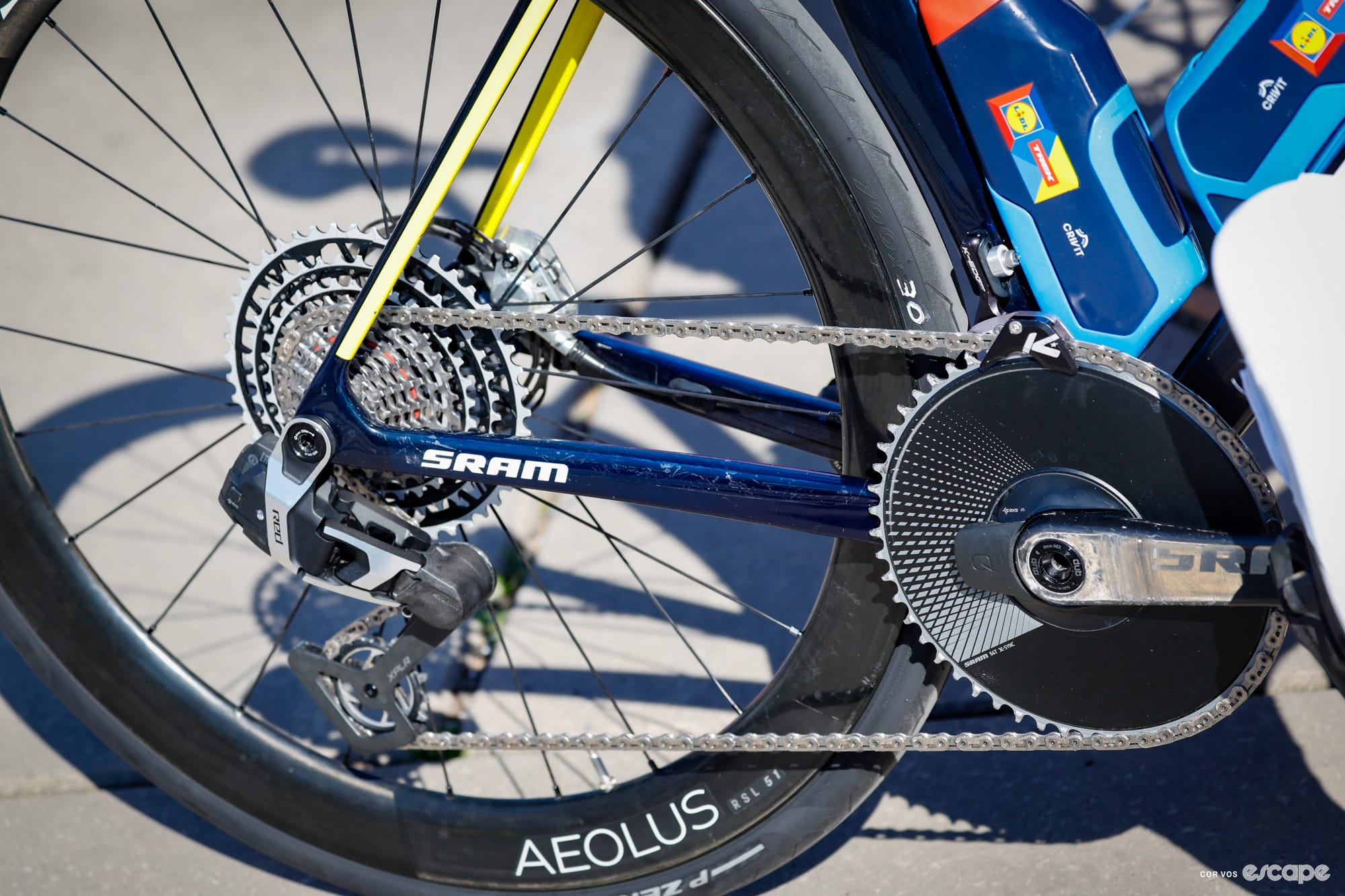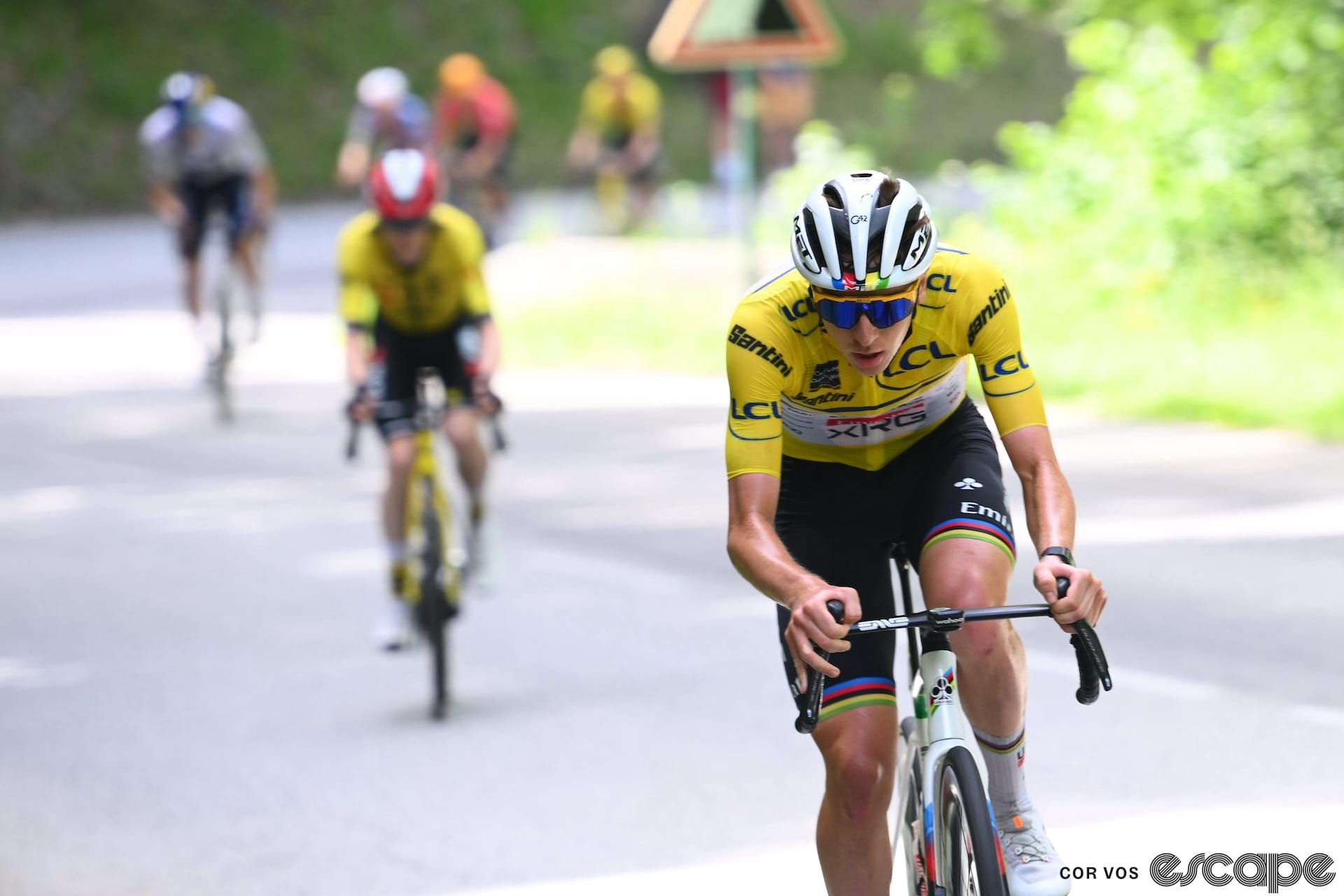The great irony of my job is that I seldom get to ride my bike like I used to. But while I was sitting in Melbourne lamenting missing Escape's annual Member Summit at the Spring Classics due to family commitments, I received a late invite to join the Rapha Cycling Club (RCC) summit in Kyoto. Given that's a much more doable four-day trip without jetlag, I couldn't say no.
Now, I wasn’t about to write a piece about riding down sakura-lined roads, sushi breaks, and onsen soaks after big days in the saddle (although all of that did happen). No one needs to hear about me gloating about my perfect riding vacation. I wanted something deeper – a story that was more than just a scenic diary entry. I didn't know what that would be until the final night of the summit.
The RCC summit brought together 130 riders from around the world to explore the backroads and mountain passes of Kyoto, a city with cycling routes as rich as its culture. On day one, I struck up a conversation with a softly spoken Japanese rider named Aki. He was riding a classic De Rosa with rim brakes and 80th anniversary Campy Record. My kinda guy. He pointed out how lucky we were to be there at the peak of sakura season and told me a little about the city. I didn't see him much for the next couple of rides, and I figured that was that – just one of the many friendly, fleeting interactions you have on these kinds of trips.
After the queen stage on Saturday, there was a final dinner where Fran Millar (Rapha's new CEO) spoke about the renewed importance of RCC to the business and a bunch of fun awards were given out. One such award was given to Aki for his book – the first book ever published about RCC and how his first summit literally changed the course of his life.
Someone wrote an entire book about RCC? This was the story I was waiting for.
A life consumed by work
"I became a member of Rapha RCC 10 years ago," Aki told me when we sat down for a proper chat. A dedicated internal medicine doctor specialising in renal dialysis, Aki's life was consumed by work before discovering RCC.
"I have to work every day, from morning to night," he explained, describing the relentless pace that left no space for personal pursuits. "I work from 8am to 11 at night, almost every day. Only Sundays I can have for me."
The demands of running his own clinic with 40-50 employees meant he had no time for exercise. "I became so fat," he admitted with a smile. For nearly 30 years, the bicycle that had once been his passion in youth collected dust as Aki focused entirely on his medical practice.
When he turned 50, his daughters insisted on a health check-up. The results were a wake-up call. He was nearly 20 kg overweight and battling the silent beginnings of multiple lifestyle diseases. He knew the path he was on. As a doctor, he’d advised patients on it countless times.
So he changed. Slowly, and then all at once. He adjusted his diet. He started exercising. He even dusted off the old road bike he’d bought in university – now a relic – and began riding again.
Around the same time, he discovered Rapha. Not the clothing, but the culture. “I just wanted to belong to something interesting,” he said. That sense of curiosity led him to join RCC, although he had no idea what it really was at the time. But when he saw an announcement for an RCC Summit in the south of France in 2017, something clicked. Aki made a decisive move that would alter his life's trajectory. "Until then, I had not been abroad since I was 30," he said. "So I lost my passport!" He decided this was his time to go overseas again. "I deserved that. So first I reserved the summit, then I went to get a new passport."
The experience was transformative. "It was only me, no other Japanese were there. But that's a good thing for me, because I had to communicate with other people. If there were a lot of Japanese there, maybe I don't speak to the foreigners. But since I was alone, I could enjoy the people and culture of foreign countries. That shocked me – it was so interesting."
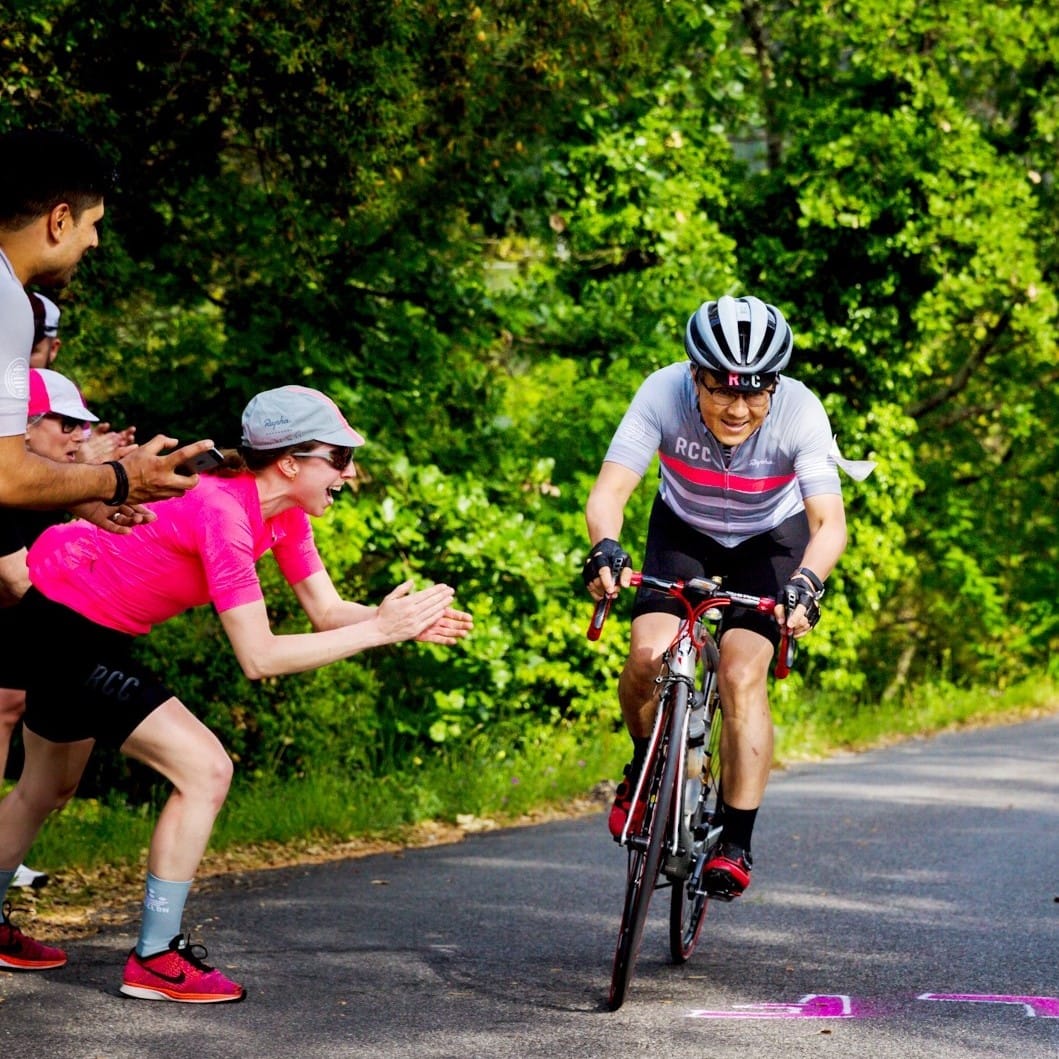
After that summit, Aki made a profound decision: "I decided I will work hard, but also I will work hard at enjoying my life, a lot. So every year after that, I go abroad for riding."
A life-changing connection
The RCC community opened new worlds for Aki, but his story takes an even more meaningful turn through his connection with Christine O’Connell, a fellow RCC member from London. At the summit, he met this tall, middle-aged woman with short blonde hair who, like him, didn't look particularly fast but pedalled powerfully on long rides.
"When I talked to her at breakfast, she seemed quiet," Aki recalled. He later found out she had just had surgery for breast cancer. A year later they discovered that the cancer had returned, but this time it had spread to her brain and bones, requiring more surgery.
"She may not look it, but she's a breast cancer survivor," Aki explained, recounting how the Rapha London community helped her prepare for and complete the challenging L'Étape du Tour race the very same year she underwent brain surgery.
Galvanised by her experience, Christine started "One More City," a charity campaign ride supporting breast cancer research. "The first year, they started only with four people, and it's open every year, getting larger and larger," Aki said with admiration.
Aki described the concept's powerful symbolism; how cancer patients deal with their disease much like cyclists approach a long journey: handling treatment, enduring side effects, going through regular checkups, and overcoming problems one by one, moving towards their goals little by little, city by city.
The parallel journeys
What makes Aki's story particularly powerful is the parallel between his own physical challenge and Christine's battle with cancer. Last year, just weeks before the Étape, Aki suffered a serious accident while training.
"I hit a small animal on the mountain and crashed, and I broke my pelvis," he explained. "I couldn't walk, I couldn't ride." Most people would have cancelled, but Aki was determined. "I have only a few years left, so I decided to go anyway to France."
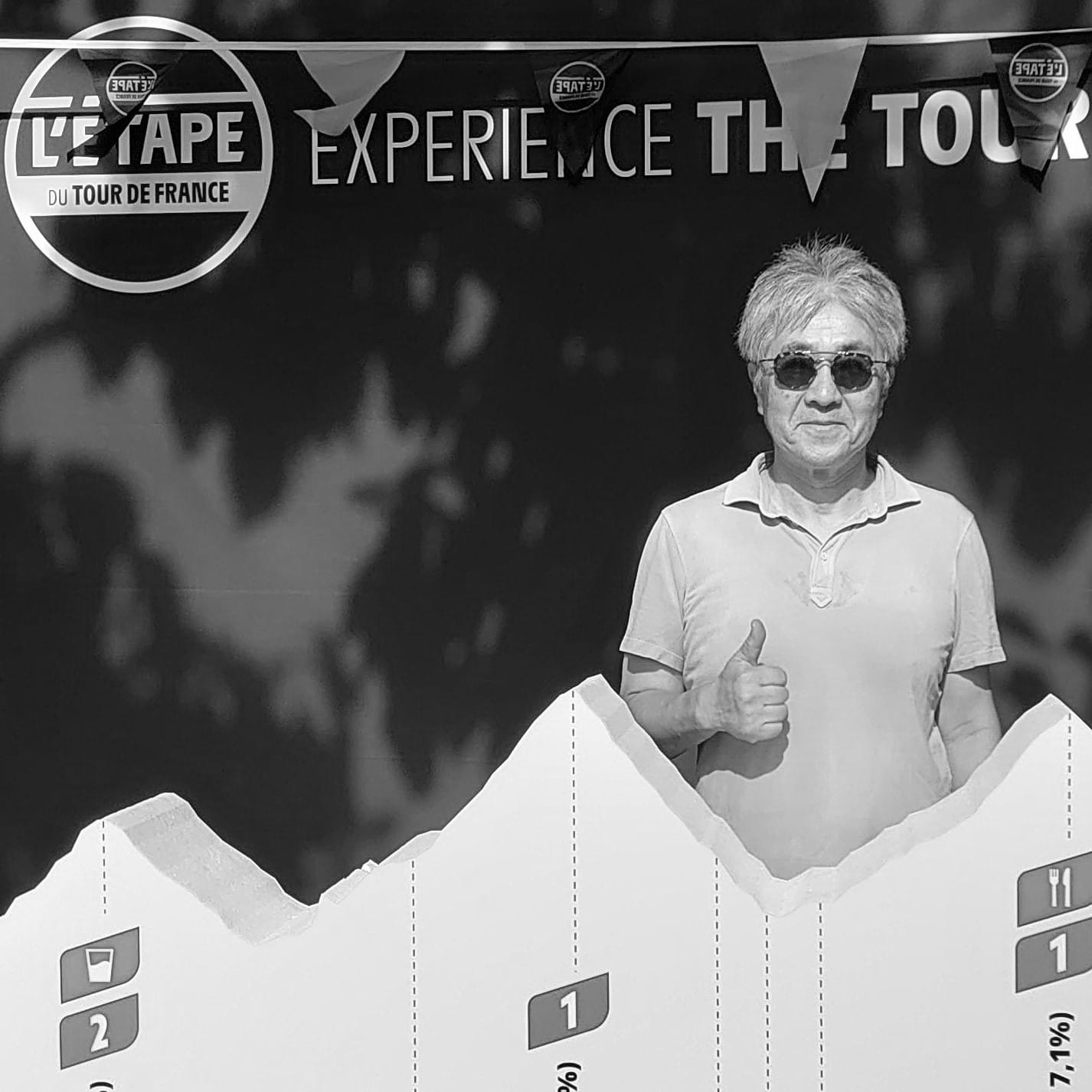
He stopped training completely and focused on recovery, trying "everything – new medicine, consultations with specialists." His condition improved enough that he took his bike to France and lined up on the morning of the race, having done nothing but rest until that moment.
During the event, after struggling through pain to reach a checkpoint, Aki had to abandon the race. "After 80 kilometres and 2,300 metres climbing, it was my limit, so I quit." Meanwhile, Christine – despite having recently discovered lung metastases and undergoing therapy – continued on.
"She was behind the time cut at the checkpoint," Aki recalled with emotion. "She didn't get an official finishing time, but she decided to continue the race – and she finished."
He saw in this moment a profound metaphor: "I had a problem with a bone fracture. She had a problem with metastatic breast cancer. Two people who knew each other from seven years ago, both with problems, riding close at that point. I quit because I had to continue my work; I couldn't risk getting worse. But she continued because she needed the confidence to live her life more. One person quit, the other person finished. That's very moving for me. That's why I wrote the book."
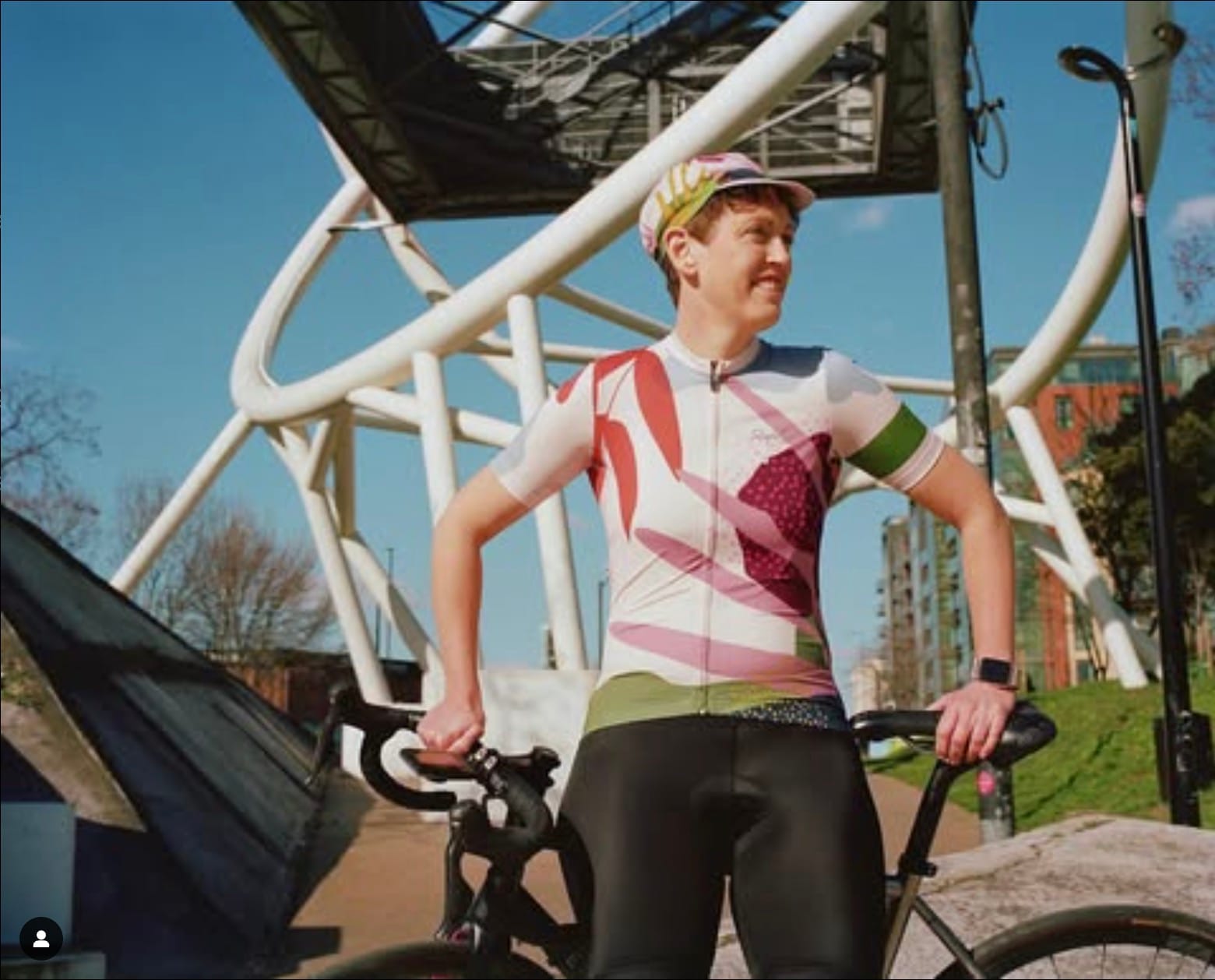
Finding balance
Today, Aki has found a new balance. While work still occupies about 70% of his life, cycling takes 10%, and he dedicates another 20% to writing. The RCC summit inspired not just his cycling renaissance but also a creative awakening – Go Over the Peak is his fourth book.
His first book told the story of a massive COVID outbreak at his clinic and elderly care facility. "Many people died," he said. "We struggled to protect, care for, and cure patients. I also got infected and was in severe condition, hospitalised for three weeks. My father died from COVID." Writing became his way of processing this tragedy.
His second book recounted his early career, including his time working alongside Katalin Karikó at the University of Pennsylvania – the scientist who later won a Nobel Prize for her work on mRNA technology that enabled COVID vaccines. "She was Hungarian; I was Japanese. We both didn't speak English well, and we spoke English friendly in the laboratory because we were both foreigners."
His third book is deeply personal, connecting his formative year in Kyoto as a student with his decision to establish his family grave there, creating a link between his past, present, and future. It reflects on how his thinking and feeling style was shaped during his time in Kyoto, and how that continues to influence his life decisions today.
This trip to Kyoto was a return for him. “Kyoto is special,” he said. “That’s where I started to think deeply. And maybe where everything returns.”
Legacy and looking forward
At 65, Aki is acutely aware of time. "I have only a few years left, maybe cycling for five years, but writing, maybe I can do more. I'm changing my life. I want to leave something behind – for my children, for others."
'Go Over the Peak' carries multiple meanings. As Aki explained: "I've already passed the peak of my life, maybe. And Christine, she had many hills for her treatment. She's getting over and over and over every year. She's afraid that every year something will happen again, but she is so positive."
That positivity – finding joy in life's challenges rather than surrendering to them – is what changed Aki's life. It's not just about the cycling; it's about discovering that life can begin at 50, and can be as rich and meaningful as you make it.
Aki's upcoming plans include a trip to the Dolomites this summer and joining the One More City ride next autumn. While he rarely rides with friends at home due to his work schedule, cycling gives him clarity of thought. "Riding in the saddle, I think clearly and get ideas for my novels," he said. "Cycling is good exercise, good thinking time, and makes my body and heart healthy."
Despite his successful medical career and newfound balance, Aki has no plans to retire – Japanese doctors typically work until the end of their lives, he explained. What he has found instead is a way to live more fully while still fulfilling his responsibilities.
"I feel better than most 65-year-olds," he said with a smile. Looking at him and riding with him, it's hard to disagree.
In Aki, I found much more than just an interesting story. I found a testament to the power of community, the importance of balance, and a reminder that it's never too late to rediscover what makes life meaningful. His journey shows that sometimes the peak is the place where the view becomes clear.
If you want to read Aki's book, you can find the English version here (note that it is a quick Google translation and accuracy is not guaranteed). You can get the native Japanese version here.
Getting there:
Kyoto can be easily accessed from Kansai International Airport (KIX) or Osaka International Airport (ITM) by train or shuttle.
Best time to go:
Spring (March to May) and autumn (October to November) are ideal, with mild weather, blooming cherry blossoms in spring, or vibrant fall foliage. Summers can be hot and humid, while winters are chilly but manageable.
Where to stay:
Central Kyoto (near Kawaramachi or Gion) offers easy access to restaurants, temples, and cycling routes. For quieter surroundings, stay near Arashiyama or the northern outskirts, where scenic rides begin just outside your door. We stayed at Dusit Thani Kyoto which was absolutely beautiful and fairly central.
Must eat:
Try Kyoto’s signature dishes like yudofu (tofu hot pot), kaiseki (traditional multi-course meal), and matcha sweets. Don't miss Nishiki Market for street food or a riverside drinks and dinner along the Kamo River.
Riding etiquette:
Ride on the left-hand side of the road. The law says that you need to ride single file, and common etiquette is that groups should be no more than 10 riders large. Drivers are typically good, but sometimes not overly aware of riders on the road.
What to pack:
Spring and autumn can go from cold to warm throughout the day, so layer appropriately and it's always best to bring a good rain jacket with you. Bike shops are plentiful and so are convenience stores (which are surprising excellent for a proper meal) so no need to bring anything special.
Cultural tips:
Punctuality and politeness are highly valued. Bow slightly when greeting or thanking someone. Always remove shoes when entering traditional inns or temples. Learning a few key Japanese phrases will open doors as English is sometimes more rare than you might think.
Routes to ride around Kyoto:
There appeared to be endless riding options around Kyoto, but to get you started here are three of the days we rode which were spectacular:
Day 1 | Day 2 | Day 3
Did we do a good job with this story?

